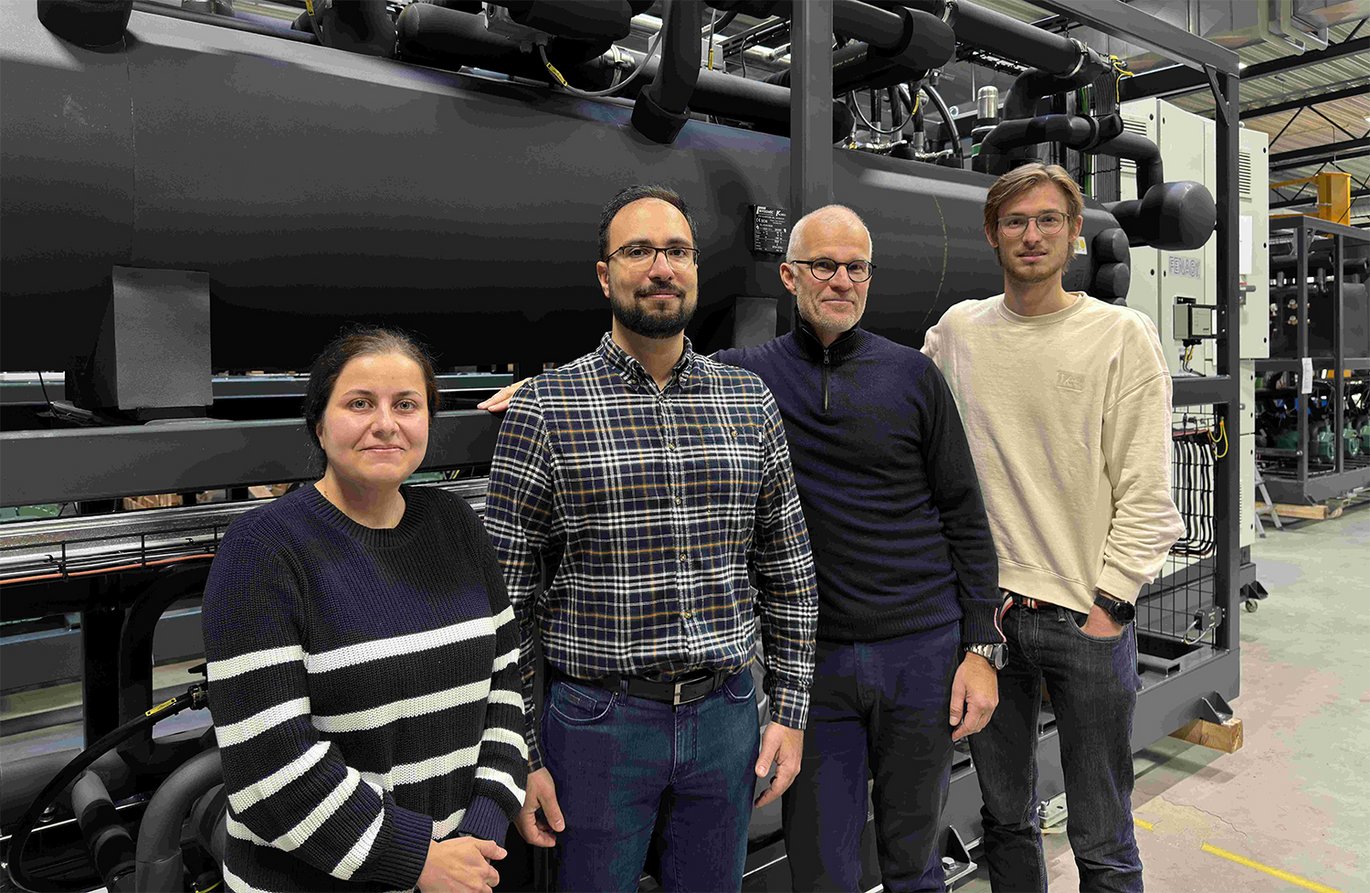"Collaboration with the university is a fundamental part of our R&D strategy"
Heat pumps are a vital element in the green transition of heating systems – for homes, for businesses and for industry. Denmark is among the world leaders in the development of new heat pump technology. For the heat pump company Fenagy A/S, collaboration with the local university is crucial.

Denmark is undergoing a major green transition of the energy sector, including development of the district heating sector to carbon-neutral heat production by 2030.
Heat pumps powered by renewable electrical energy are the key to electrifying the heating sector, both for heating homes and businesses via local plants or district heating, and for heating in industry.
Denmark is among the world leaders in development of new heat pump technology. The Aarhus-based heat pump company Fenagy A/S develops CO2 heat pumps for the district heating sector and industry, and part of this development is taking place in collaboration with Aarhus University's Department of Mechanical and Production Engineering.
"The whole energy sector is calling for new technologies, and the winners will be the first-movers. Introducing new technology and knowledge into our products means more than you might think. On large industrial heat pumps, for example, we need to be at the forefront to make them as energy efficient as possible. Therefore, it’s vital for us to collaborate with knowledge institutions to test and apply the latest technologies," says the company CEO, Kim Gardø Christensen.
He continues:
"And some of these technologies are so complex and advanced that we can't develop them ourselves. For example, within software development, ejector technology and defrosting technologies. It makes perfect sense to collaborate with university researchers, who have tools and computing power that we don't have."
Associate Professor Pourya Forooghi, leader of the Heat and Fluid Flow research group at Aarhus University backs him up. He is working with Fenagy on several publicly funded research projects under the Energy Technology Development and Demonstration Programme (EUDP) and Innovation Fund Denmark (IFD).
"There are several exciting thermo-fluidics problems in a heat pump, both from a basic research perspective and for the technical and applied sciences. For example, finding the best way to mitigate and manage frost formation, modeling of two-phase flow in ejectors, or changing the design of a heat pump to tailor it to new, environmentally friendly refrigerants," he says.
For example, frost formation on evaporators is a major problem for air source heat pumps in cold climates like Denmark. Defrosting is a very energy-intensive process, and therefore an over-designed defrost method can affect the heat pump's energy efficiency, while an under-designed method risks failing.
"By dealing with these problems, we can increase the energy efficiency of heat pumps, which means lower operating costs for the customer, competitive products for the manufacturer and, not least, greener solutions for society," continues Pourya Forooghi.
So far, the collaboration between the associate professor and his research team and Fenagy comprises two publicly funded EUDP projects, one IFD industrial post-doc, as well as Master's thesis projects with engineering students.
"These are extremely important collaborations for us, and we get far more out of collaborating across disciplines than if we don’t. We are a knowledge-driven company with focus on developing green solutions. I know we live by selling physical products, but the products are forged by knowledge. For this reason, collaboration with the university is a fundamental part of our R&D strategy, which helps ensure that we remain competitive in the global market. In the past, there has been no relevant research going on in Aarhus, so we did not have the option to work with a local University. This has changed now," says Kim Gardø Christensen.
The EUDP is a subsidy scheme that supports new technology in the energy area to help meet Denmark's energy and climate objectives. Read more about the scheme here.
Contact
Kim Gardø Christensen
Director, Fenagy A/S
Email: kgc@fenagy.dk
Tel.: +45 20943505
Associate Professor Pourya Forooghi
Department of Mechanical and Production Engineering, Aarhus University
Mail: forooghi@mpe.au.dk
Tel.: +45 93522303
